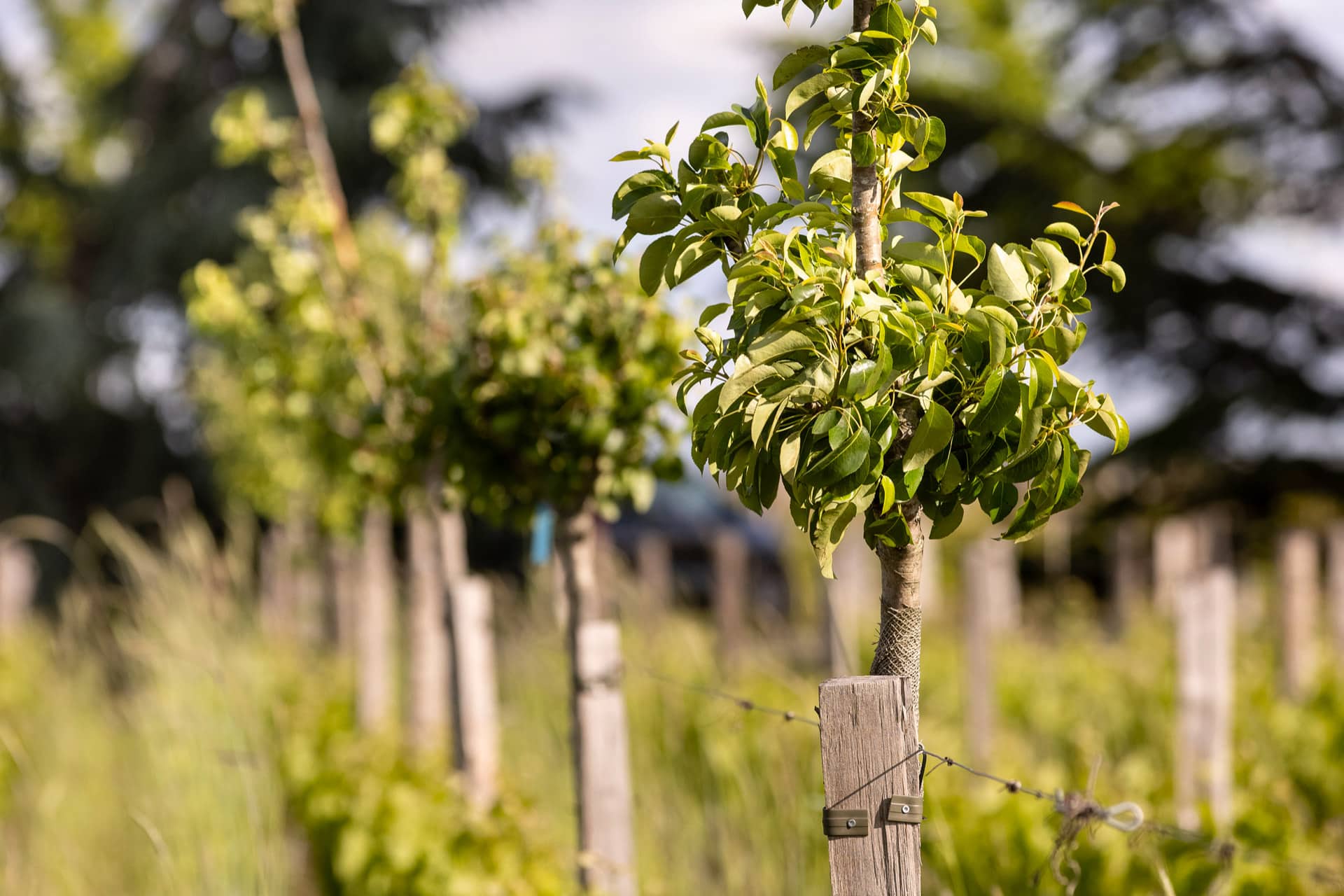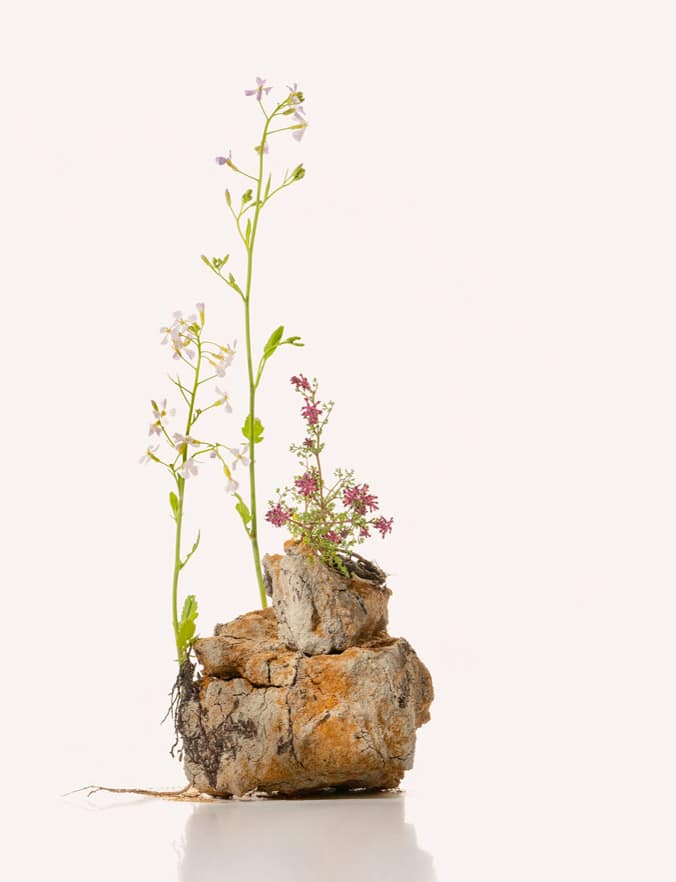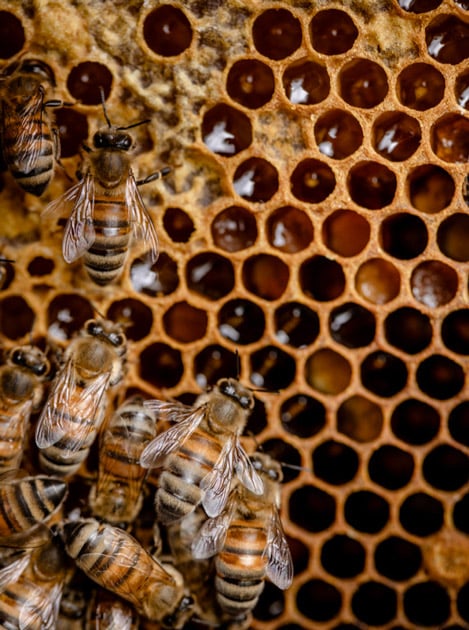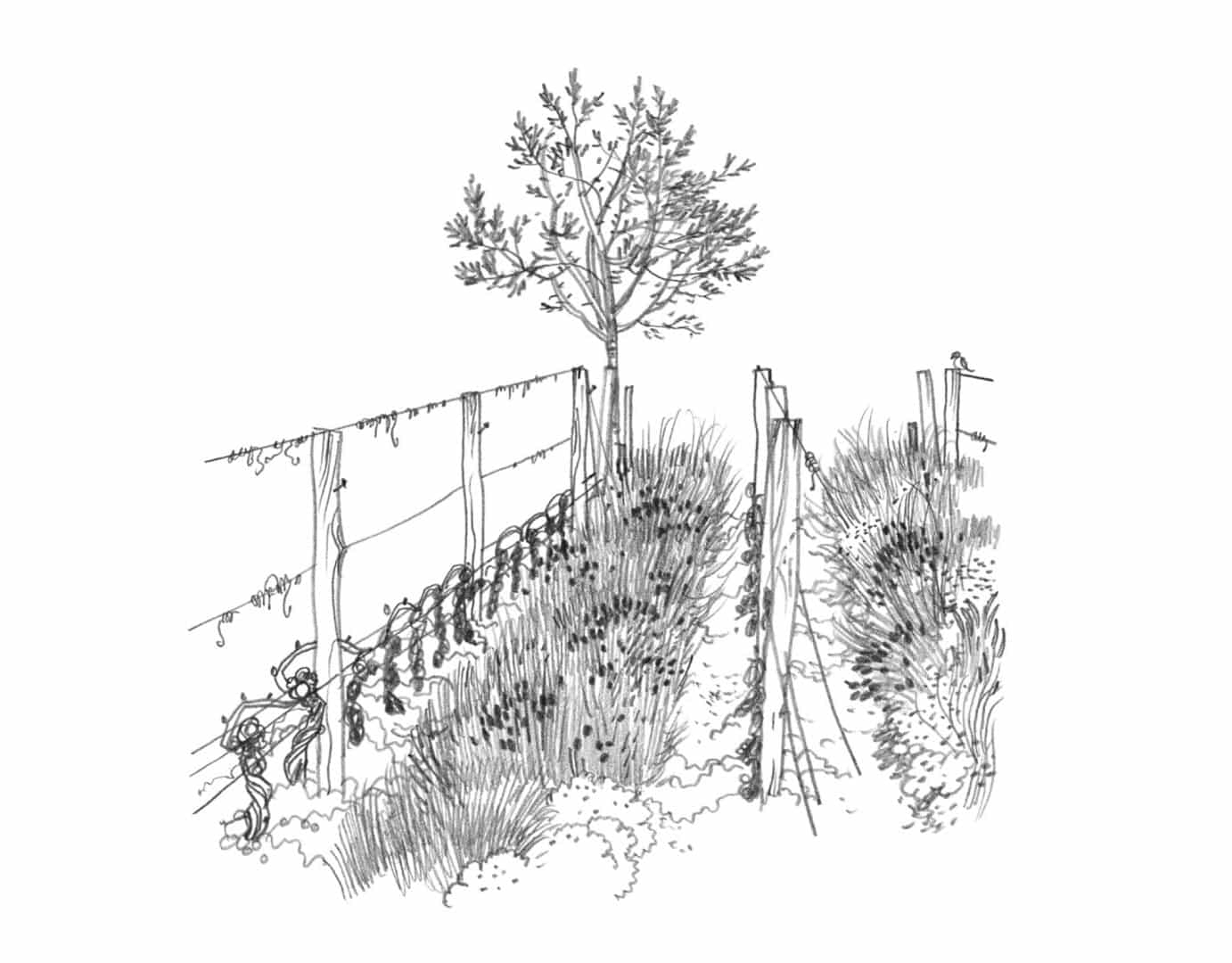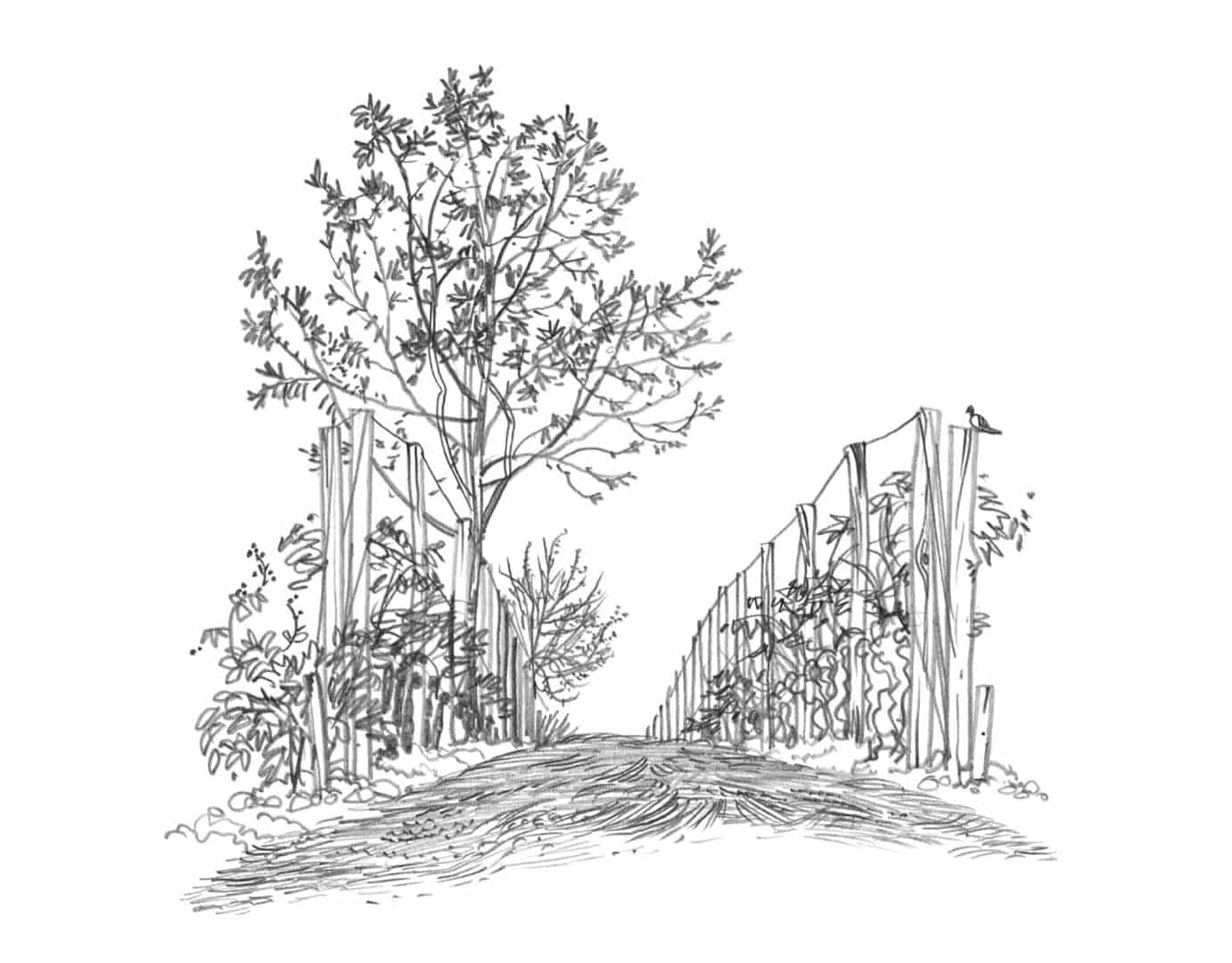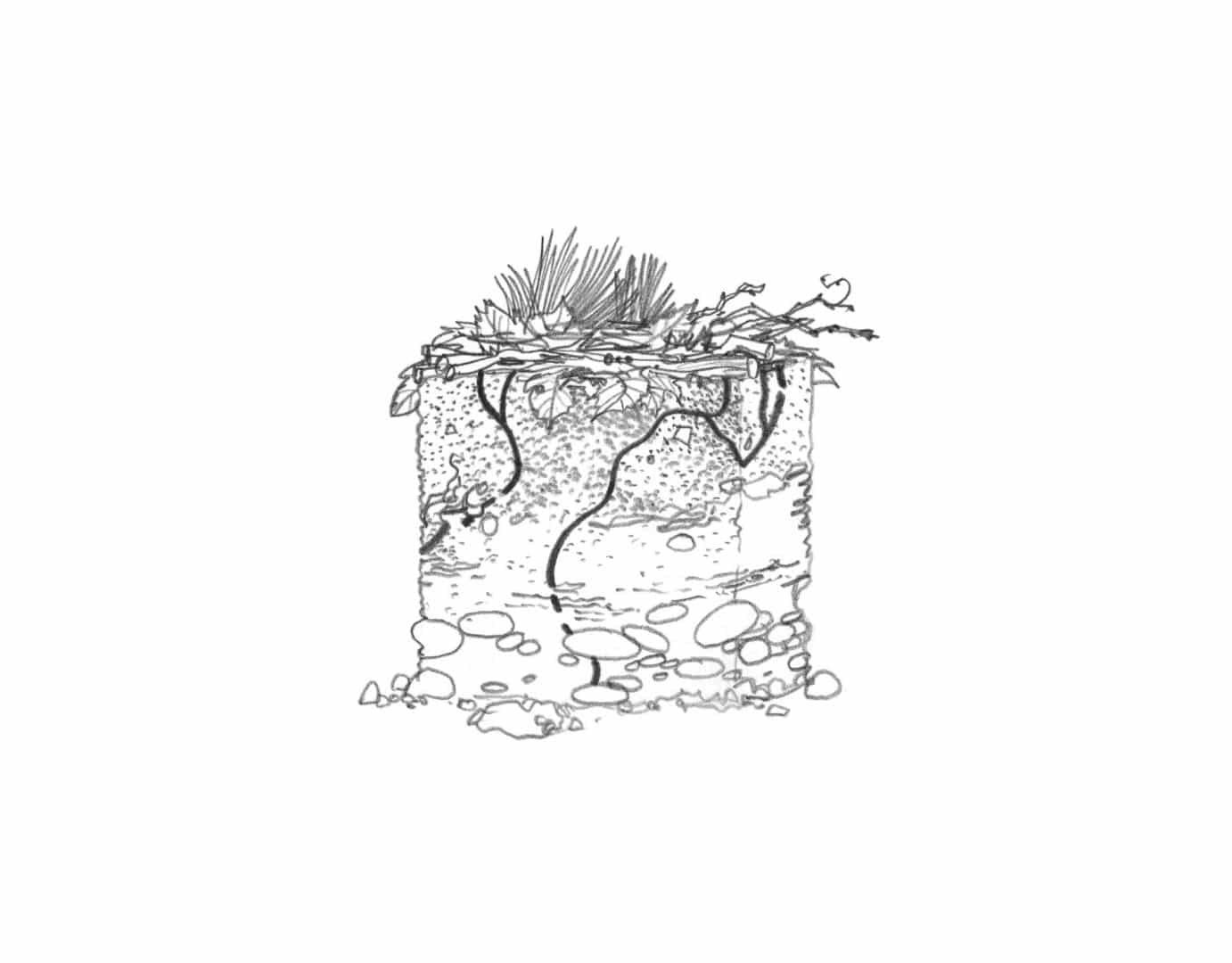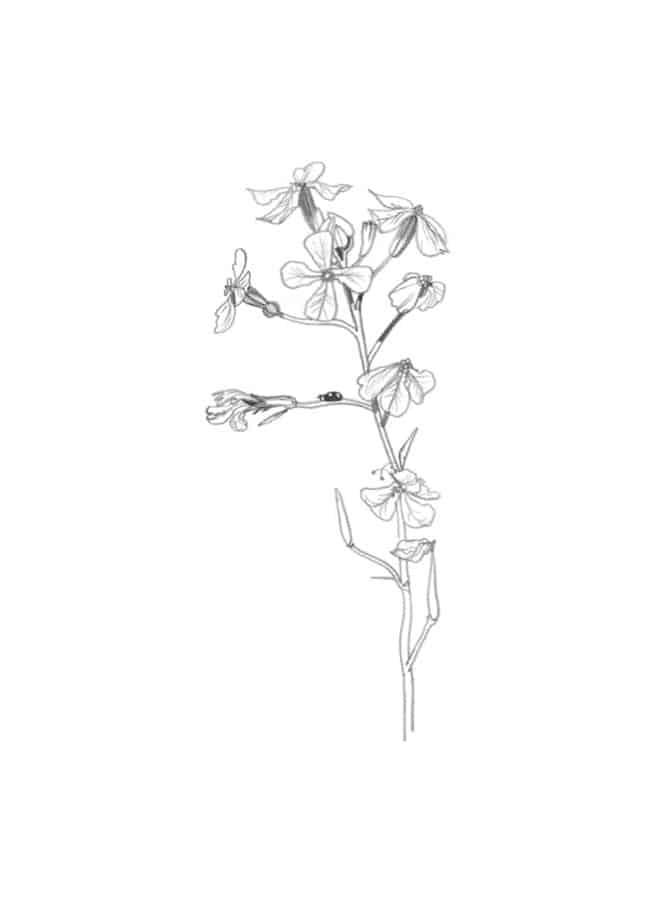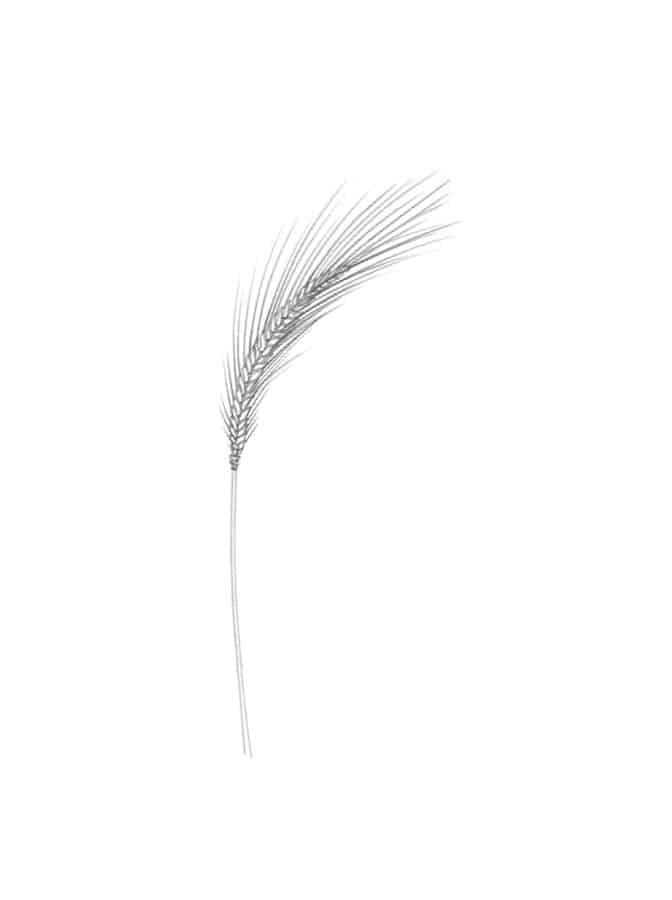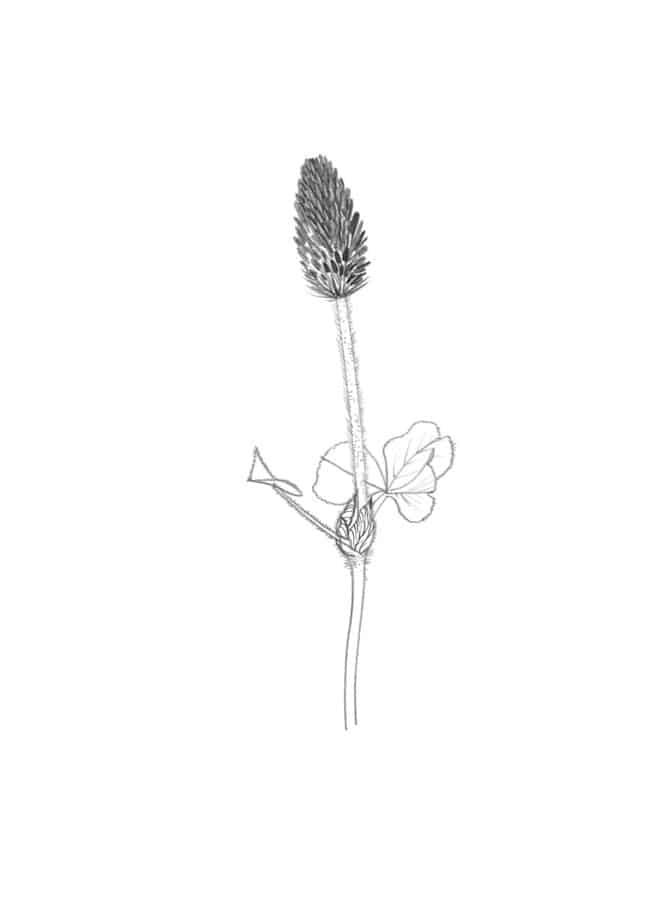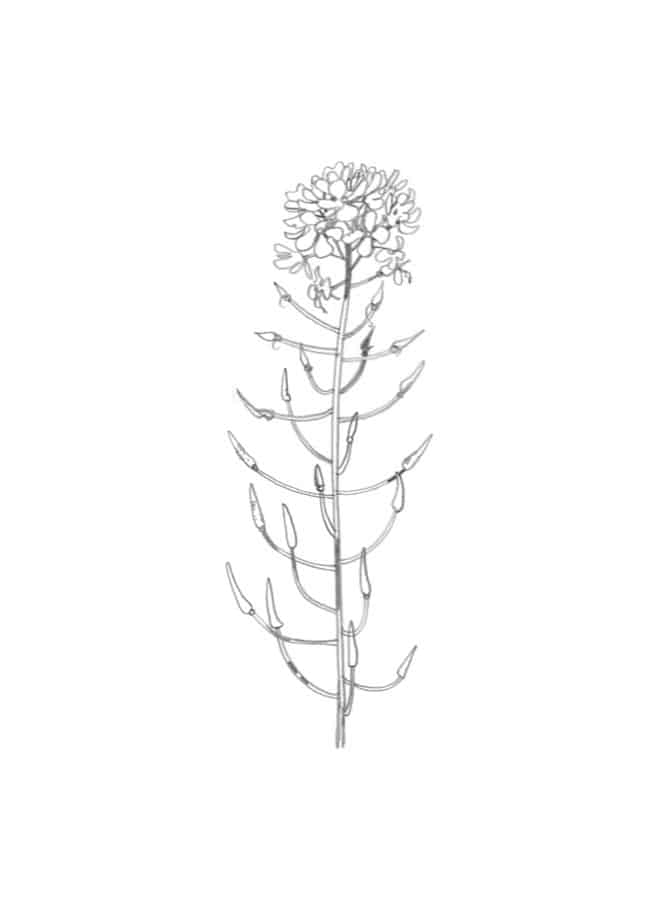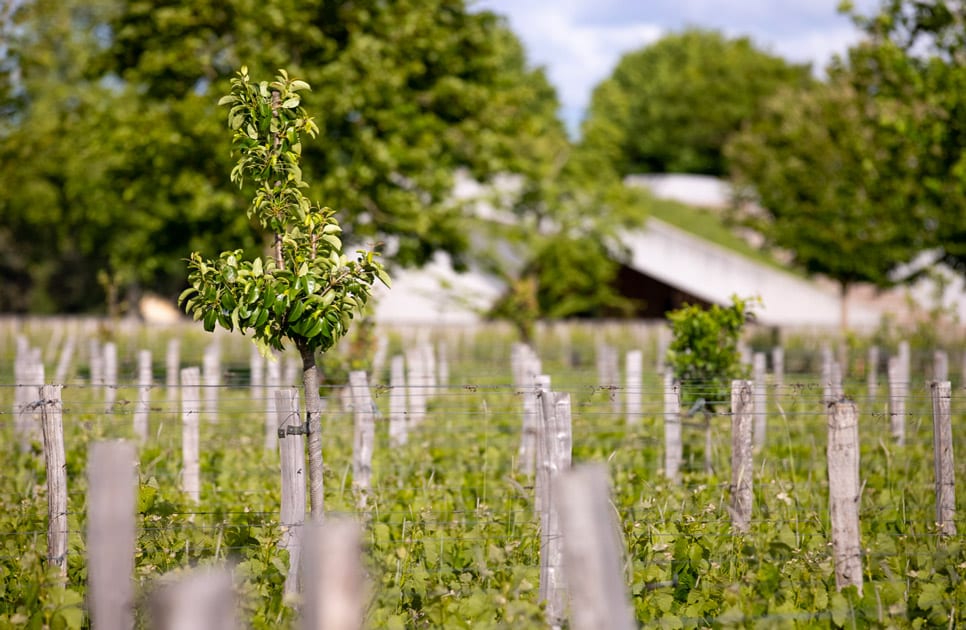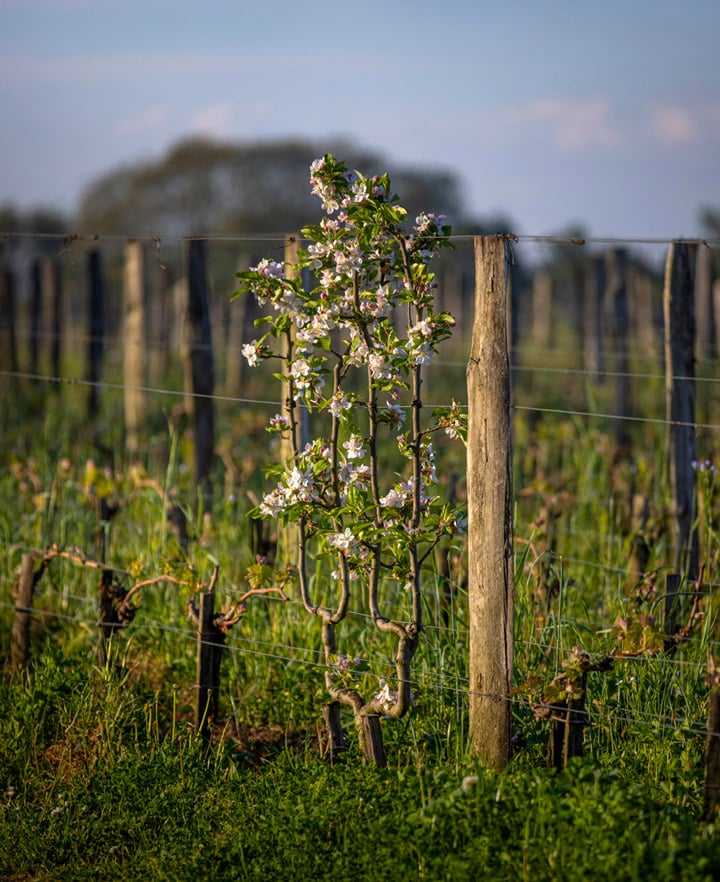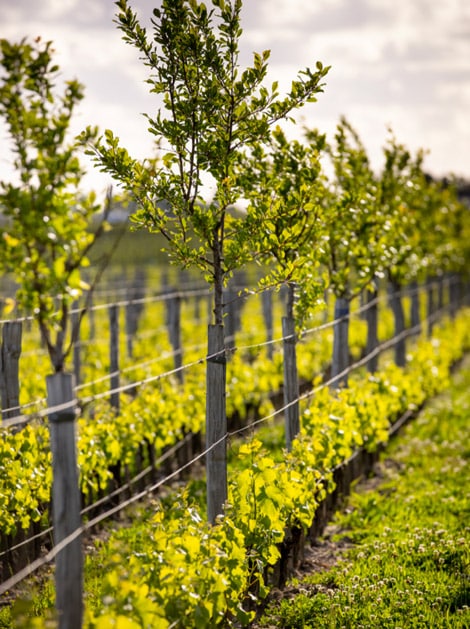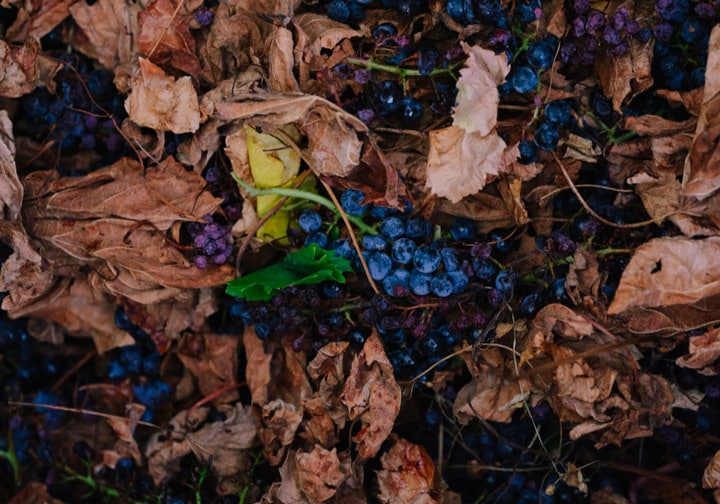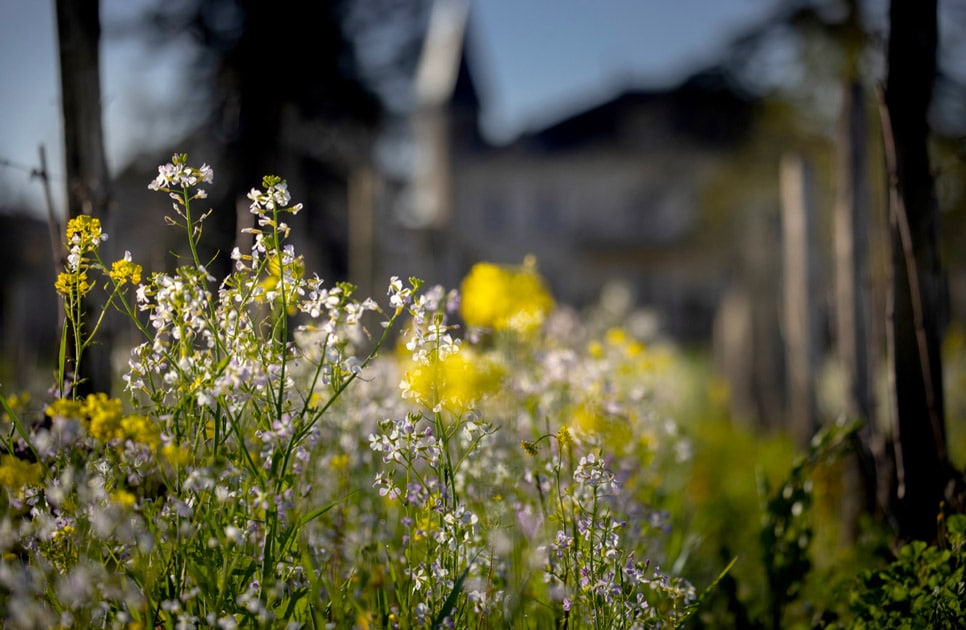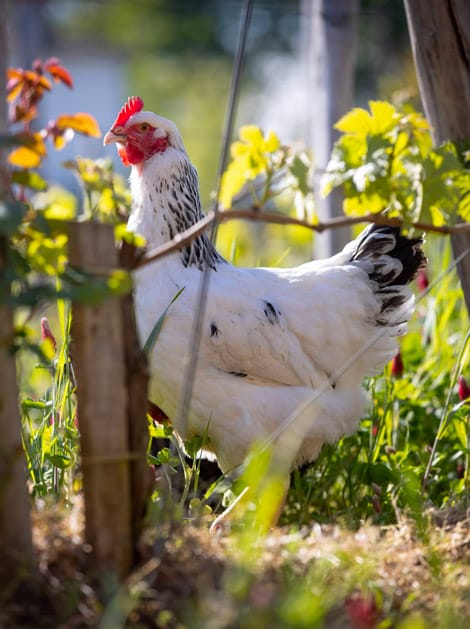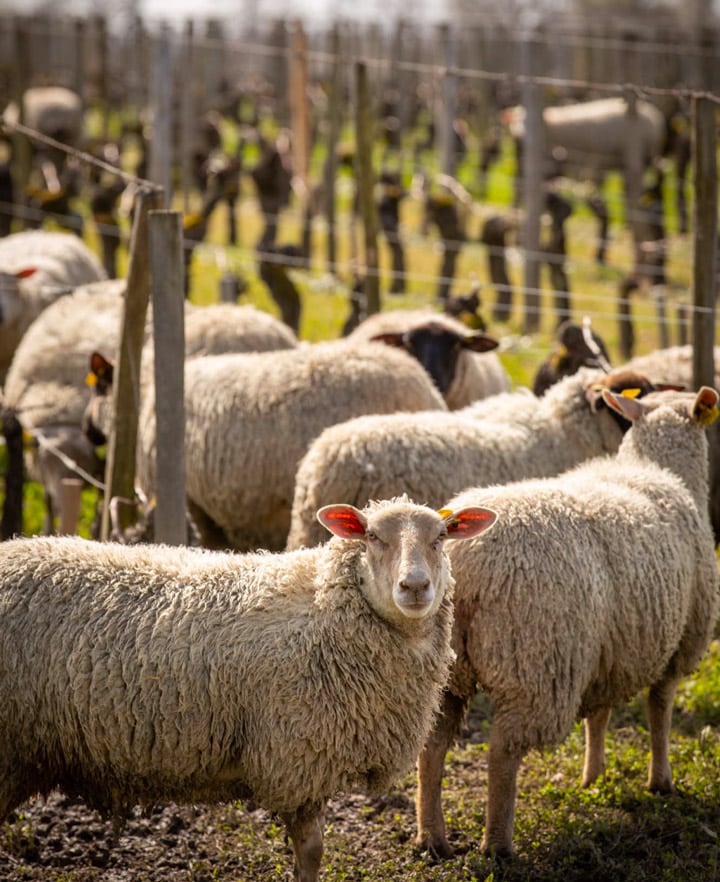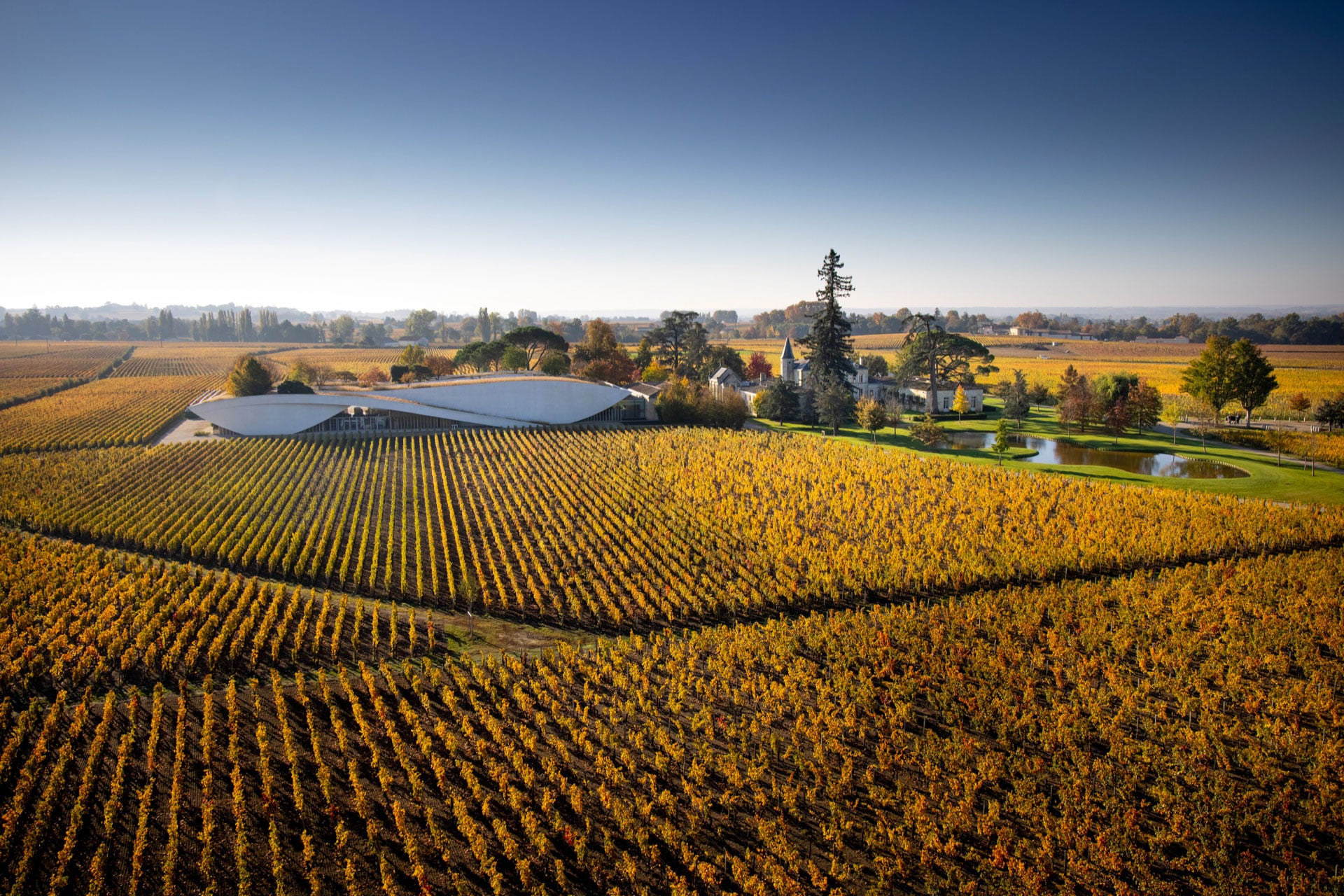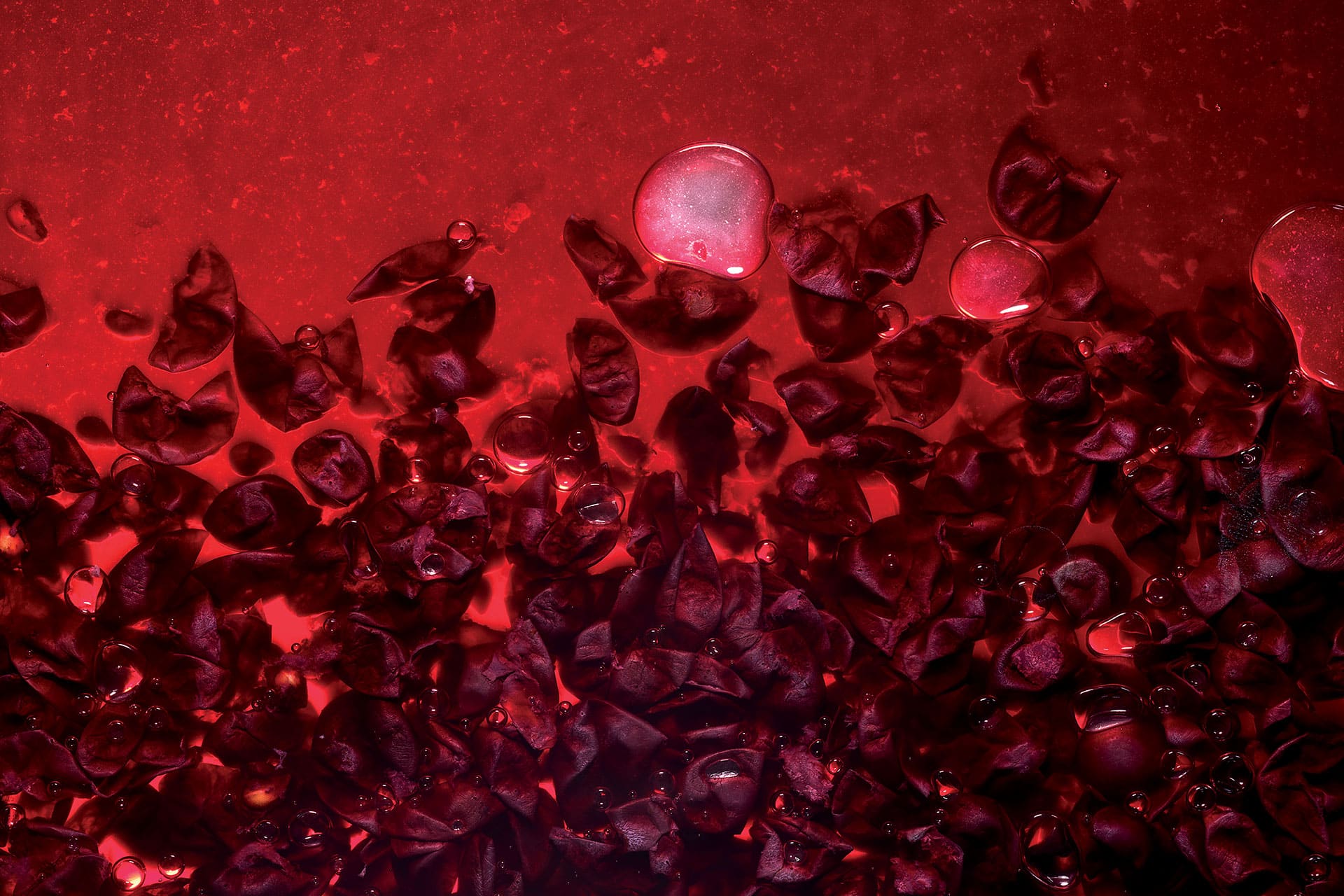The discontinuation of ploughing
The challenge we are presented with from now on is immense: the reduction of CO2 emissions concerns the whole of humanity. The role of soil is essential to dealing with this challenge.
Read more Close
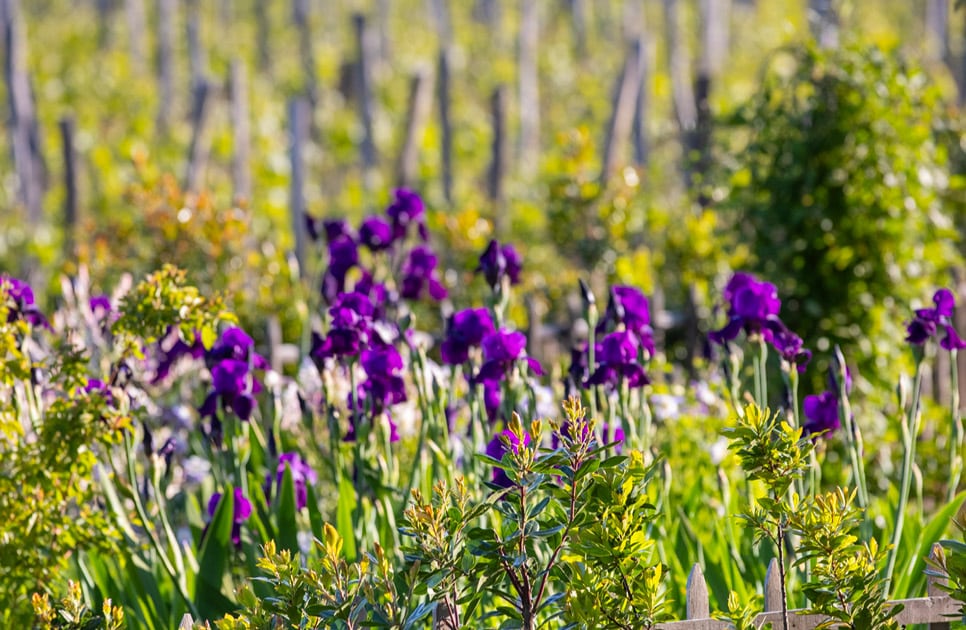
Read more Close
A major tool to fight pollution and rising temperatures, whilst also improving the fertility of our land and crop production, is to increase and stock the amount of carbon found in agricultural soils.
We advocate viticulture on living soils; keeping them covered. Plants sewn between the rows of vines grow and produce green fertiliser. This layer of vegetal debris offers several other advantages too: the natural mulch forms a layer in the row which retains water, keeps the soil moist and protects against drought. In addition, this organic matter prevents the erosion which uncovered soil is prone to: a living soil is stable and does not erode.
Enriched and strengthened in this way, our soils can trap more of the atmospheric carbon. Thanks to this virtuous circle, the carbon contributes to the fertility of our vineyard.
‘A living soil is stable and does not erode.’
Close
